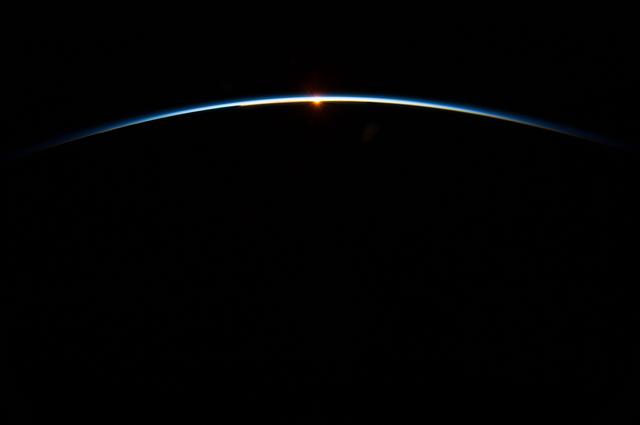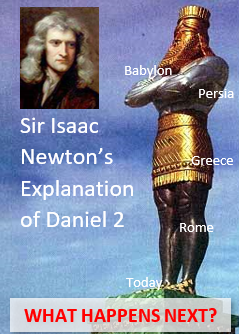
The creation-evolution controversy: a call for fairness on both sides
The following are areas pertaining to the creation-evolution debate in which both the creationist and evolutionist "camps" sometimes undermine the claim to be truly seekers after truth, which, after all, is what both science and religion are supposed to be about.
Ignorance of what the other camp Is saying
Books and articles attacking creation often reveal a lack of knowledge about what creationists are actually saying and reiterate arguments for evolution and against creation which have been refuted numerous times. We regret that creationists have been guilty of the same kind of thing. Both sides can afford to be more circumspect and scholarly than they sometimes are. Worse is when lapses occur not from ignorance, but deliberately because of the desired effect of certain arguments upon the susceptible. Such dishonesty has no place in the promotion of what is considered truth, whether in the name of science or in the name of the God who said, "You shall not bear false witness" (Exodus 20:16). Truth should never be buttressed with falsehood!
The Claim that Science and Religion Are Mutually Unrelated
Scientists sometimes try to define what the boundaries of religion are and to prove that science is outside the realm of religion, and therefore, people of faith should not be fearful of any claims of the scientific consensus but rather to simply accept them because they are unrelated to religion by definition. In other words, for there to be any conflict would be as absurd as slipping on a banana peel left on the kitchen floor while walking across the garage.
It is ironic that scientists who, speaking as scientists, feel qualified to state just where the boundaries of religion belong, and yet claim that science has nothing to say about religion! It is true that you can find theologians who say the same thing. But what qualifies a scientist who claims that science has nothing to say about religion to endorse a theologian?
 Mock-up of the bomb that was dropped on that fateful morning of August 6, 1945 on Hiroshima, Japan. Its design was clearly related to its dreadful purpose.
Mock-up of the bomb that was dropped on that fateful morning of August 6, 1945 on Hiroshima, Japan. Its design was clearly related to its dreadful purpose.Image Credit: US government DOD and/or DOE photograph
It is argued that science deals with the nature of the observable, measurable universe and that religion deals with the purpose of the universe, and so the respective domains of each do not overlap. Science and religion have been dubbed as "non-overlapping magesteria" (often abbreviated as "NOMA"). Suppose, now, that you were shown a blueprint of an atomic bomb, and then you were told that it was designed to feed the hungry, provide shelter for the homeless, and to clothe the naked. Would you be convinced? Of course not, at least not if you understood the science behind the blueprint! Now, suppose that you were shown the blueprint of a universe built on the bedrock in which the oppressors (the "fittest") win over the weak, and then you were told that the meek shall inherit the earth (Matthew 5:5)? Is there no contradiction here? Even if we grant that these differences can be harmonized within the framework of a worldview that embraces both evolution and Jesus' teaching, the very fact that there are, at the very least, apparent discrepancies—if not very real ones—calls into serious question the assumption that science and religion are clearly unrelated by their very nature.
Furthermore, if we were to accept a redefinition for religion that makes religion and science mutually exclusive, it would no longer be proper to call the faith of the Bible a religion because its teachings clearly encompass much more than is delineated by this narrow definition. Just a change in semantics, perhaps—at least for those who know better than to apply this redefinition to include Bible religion. But this redefinition is encouraging millions of the unsuspecting to discard cherished beliefs for no other reason than that they've been lured by a crafty redefinition. Whatever one's views on religion, the prospects and ethics of this dystopian kind of thought manipulation are disturbing indeed.
Misconstruing evidence
Neither evolutionists nor creationists should misconstrue evidence to support their viewpoints nor should they conceal evidence that doesn't seem to fit a particular theory so well. Every reasonable effort should be made that this doesn't take place either willfully or unwillfully. All scientists should be up front, publicly, about how their interpretations both appear to fit and don't appear to fit the evidence. Admittedly, there is a level of subjectivity involved and it may not in all cases be practical to point out every conceivable discrepancy, whatever the position one advocates. But we need to beware lest we make "practicality" an excuse for misrepresentation.
Misrepresentations of the opposition
Willful misrepresentations of the other side are intolerable in both the name of science and in the name of religion. Truth does not need falsehood to promote it. Falsehood has always been the tool for propagandists to promote their agendas. It is completely out of place in the promotion of truth. Not only is willful misrepresentation dishonest, care also needs to be taken to avoid accidentally misrepresentating the other side.
Along the same vein, there is no place in the promotion of truth for the enlistment of straw men arguments. In other words, we should take care not to present an easily refutable statement as representative of "the other side" when the opposition does not even make such a statement in the first place.
Enlisting language ambiguity and equivocation in defense of "The Truth"
Scientists need to take care not to use the ambiguities of language to win public support for their case. That is dishonest, and should be an embarrassment when done in the name of science, as it certainly should be in the name of religion! An example is a person saying that no scientist believes in creation, but not revealing to the public that the speaker's personal definition of a scientist excludes creationists by definition. By choosing to not reveal this pertinent bit of information, the message conveyed to the public is that no one who has scientific training and makes valuable contributions to science is a creationist, which is demonstrably not true!
 Perseverance's Route to Mars
Perseverance's Route to MarsUnderstanding the universal law of gravitation is foundational to the success of space exploration.
Image Credit: NASA/JPL-Caltech
Another example is saying that evolution is an established fact, just as is the law of gravity. The implication here is that by rejecting the evolutionary theory of common descent, creationists are as foolish as though they rejected the law of gravity. Aside from the fact that we all knew that ice cream falls long before entering kindergarten, Newton's universal law of gravitation has been directly observed and measured in the laboratory and is foundational to space exploration. If by the term "evolution", natural selection is what is really being referred to, there is no question but that natural selection has been observed in the laboratory and in nature in the "here and now" countless times, and thus the statement that evolution is just as well established as is the law of gravity is true, but misleading, because the statement is made to suggest that creationists deny natural selection. A cursory check on the Internet will reveal that this is simply not true. We know of no mainstream creation scientist who questions the fact of natural selection and of change over time.
On the other hand, when it comes to microbes becoming people and peonies, and of the evolution of sophisticated biological structures over the course of billions of years, the situation is very different. By reason of the sheer time element necessary to perform the necessary tests, this can never be demonstrated in the laboratory. Evolution, in this sense, is a historical (or forensic) science, and not an experimental science, and so is in a different category than is the law of universal gravitation. The science that makes technology possible - the technological successes that are urged to give us implicit confidence in the abilities of all science in general - is experimental science, in which experiments are repeatedly performed, variables are altered, results are measured, evaluated and compared. Technologies improve by altering the construction of machines and materials until the desired results and qualities are repeatedly attained. To claim that experimental science is the same as historical science because it takes time for photons to travel from the subject to our eyes is to miss the real distinction between the two. It should be clear that it matters not whether photons travel instantaneously, at the speed of light, or at the speed of an amoeba - experimental science is fundamentally different from historical science, and is inherently much more powerful. While attempts are being made to narrow the gap between the historical and experimental sciences, the historical sciences will likely always be at a disadvantage. This is not to say there can be no confidence in the deductions from the historical sciences, but the confidence gained will generally not be on a par with the confidence gained from the experimental sciences. We can send a satellite into orbit around an asteroid, confirming universal gravitation. Confirming that natural selection can explain the elegant systems we see in living things today is another matter entirely, hence, the comparison of evolution to the law of gravity is unwarranted.
Inadmission to not having all the answers
We should be willing to admit that we don't have all the answers. Really, that shouldn't be so embarrassing for either side - after all, if we had all the answers, there would be no need for scientific investigation, would there? There are areas in which the evidence seems to more closely favor one side, and areas where it seems to favor the other. Many seem to fear admitting that creation may fit the evidence better in at least some cases because that may cause evolution to lose ground. The question, however, is are we interested in promoting truth, or in promoting our opinion of truth? Science, which presumably exists for the purpose of discovering truth rather than for the purpose of promoting a system of belief, has nothing to fear from an honest forum. It is intriguing, then, that Christians - who by definition are committed to a system of belief - often are more willing that both sides be heard (including in parochial schools) than are evolutionists.
Using outdated arguments
It is reasonable to expect that there may be arguments used by both sides that may later be overturned by further evidence. Both sides need to take care not to use outdated arguments, and to admit publicly when an argument turns out to be unsound.
For arguments creationists should not use, see: Arguments we think creationists should NOT use posted by Creation Ministries International, and also, Answers in Genesis' Arguments to avoid.
Curt emotionalism and name calling
Curt emotionalism and name calling are often resorted to when one has no other answer to give. That, quite simply, is not scientific. Neither is it befitting the "pinnacle of evolution" nor "humans created in God's image."
Pounding the pulpit (or lecturn) to cover up weak arguments
It is said that in the margin of a preacher's sermon notes was written the words "Argument weak here...Pound pulpit." Whatever one's viewpoint on the creation-evolution debate (or on anything for that matter), don't do this. For example, prefacing statements with words such as "It is obvious that...", or "We can be 100% certain that..." when you don't believe the argument is so certain yourself is simply dishonest. Better should be expected, both from the Christian, and from the scientist.
Page last modified: 2025.12.08

The Pursuit of Truth
Can the aggregate of neurons we call the brain know what Truth is?
What Sir Isaac Newton had to say about one of the most iconic prophecies of the Bible

God doesn't make sense, unless...
5 considerations that help get God off the hook.
Evidences for God
4 evidences that God exists.

